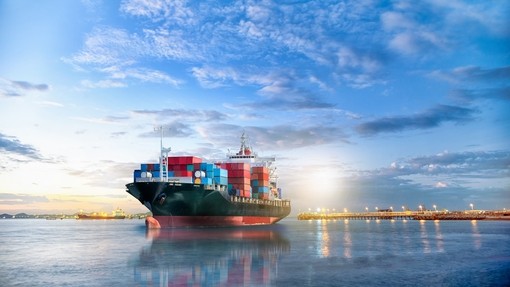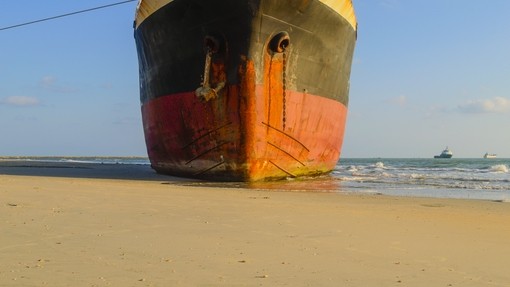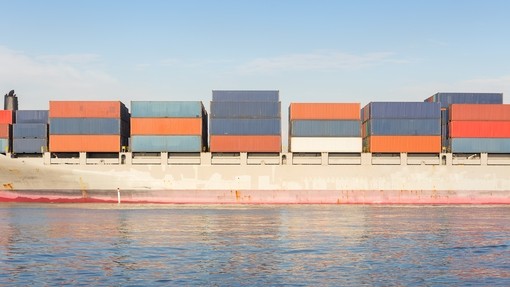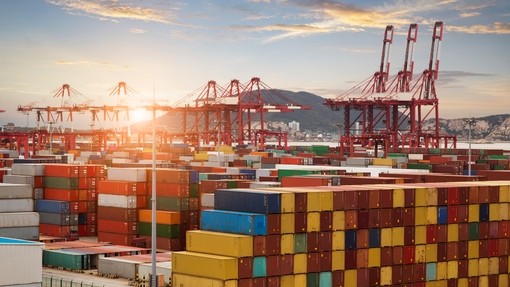Dera Commercial Estate -v- Derya Inc (The “SUR”) [2018] EWHC 1673 (Comm)

Details
In this case, the Commercial Court dealt with a section 68 challenge and appeals on four issues of law under section 69 of the Arbitration Act 1996 from an LMAA arbitration award which had dismissed the counterclaim for ‘inordinate and inexcusable delay’.
Factual background
The claim relates to the purchase by Dera Commercial Estate (Dera) of 18,000 metric tons of Indian maize shipped aboard the “SUR” (the vessel) in Diamond Harbour and Vizag completing on 27 July 2011. Bills of lading were issued incorporating the Hague Rules and providing for disputes to be settled under English law by arbitration in London.
The vessel then departed for Aqaba where the cargo was to be discharged. Following her arrival on 16 August 2011, the Jordanian customs authorities refused to allow the cargo to be discharged saying, in a letter dated 8 September 2011, that this was on account of alleged ‘broken percentage, foreign matters, impurities, damaged kernels… and apparent fungus’.
On 12 September 2011 Dera issued proceedings against Derya Inc (owners) in Jordan claiming US $8 million for cargo damage. Following this, on 16 September 2011 the American Club (the club) put up a US $9 million letter of undertaking (LOU) in connection with all disputes and differences arising under the bills of lading.
LMAA arbitrators were then appointed by the parties in October 2011 in relation to ‘all disputes’.
The impasse in Jordan continued until 8 November when the vessel departed from Aqaba without permission from either Dera or the Jordanian authorities, and sailed to Turkey. Following the issuance of proceedings in Turkey, the cargo was discharged from the vessel, subsequently sold and the sale proceeds paid to the owners. After this the vessel was scrapped.
The London arbitration remained dormant until 23 March 2015 when claim submissions were served by Hill Dickinson on instructions from the club exercising their subrogated rights. The claim was for, inter alia, a declaration of non-liability for the cargo claim and an order that the LOU be released. Dera responded on 1 June 2015 and served particulars of the cargo claim relying on the bills of lading and owners’ Hague Rules obligations. Reply submissions were served on 26 August 2015 by the owners and on 16 October 2015 by Dera.
A hearing then took place in March 2017 on preliminary issues and the tribunal determined that:
- the cargo claim was not extinguished by virtue of the Turkish proceedings because Dera had not submitted to the jurisdiction of the Turkish court; but
- the cargo claim was struck out for want of prosecution under section 41(3) Arbitration Act 1996
Dera then raised a section 68 challenge alleging serious irregularity on the part of the tribunal and sought permission to appeal under section 69 of the Arbitration Act 1996.
By order of Leggatt J dated 18 December 2017, Dera was given permission to pursue its section 68 challenge on one out of the four issues which it had put forward (the remaining three failing to survive owners’ challenge under order 8, rule 5 of the Commercial Court guide). Dera was also given permission to appeal on four out of five questions of law under section 69:
- Whether a claim which is particularised within the six year limitation period applicable to contractual claims pursuant to s. 5 of the Limitation Act 1980 can nevertheless be struck out for ‘inordinate delay’ under s. 41(3) because the parties have contracted for a shorter limitation period (here one year under Article III rule 6)
- Whether, in a contract evidenced by a bill of lading subject to the Hague Rules, a geographic deviation precludes a carrier from relying on the one year time bar created by Article III rule 6
- Whether, where the one year time bar created by Article III rule 6 applies, the period between a) the time that the cause of action arises and b) the expiry of the contractual time limit is to be taken into account when assessing whether the delay is ‘inordinate’ for the purpose of s. 41(3)
- The proper order, burden and/or standard of proof applicable to a tribunal’s assessment of whether a delay is ’inexcusable’ for the purpose of s. 41(3)
The matter was heard by Carr J. who handed down a detailed judgment on 13 July 2018. The judge held that Dera’s section 68 challenge failed, but Dera succeeded with the second of the legal challenges.
Legal issues
Dealing first with the section 68 challenge, Dera had to show a serious irregularity under section 68(2) of the Act by alleging bias. The question the court had to consider was, therefore, ‘whether the fair-minded and informed observer, having considered the facts, would conclude that there was a real possibility that the Tribunal was biased’ (Porter –v- Magill [2002] 2 AC 357).
The judge made a detailed analysis of Dera’s complaints, and found that there was no real possibility that a fair-minded and informed observer would conclude that the tribunal was biased.
As regards the questions of law the judgement on issue two is, by far, the most important. Here the judge held that she was bound by the decision in Hain Steamship Company Ltd –v- Tate & Lyle Ltd [1936] 41 Com Cas, 350. Therefore, where there is a geographical deviation, the other party to the contract is entitled, upon discovering the deviation, to retrospectively declare itself as ‘no longer bound by any of the contract terms’. If it does so, it is not bound by ‘the promise to pay the agreed freight any more than by his other promises’. However, the innocent party could also elect to treat the contract as subsisting and, if it did so with knowledge of its rights, it would be bound by all of its terms.
It is clear that the judge came to this decision reluctantly because she considered she was bound by Hain Steamship. As a result, owners were given permission to appeal to the Court of Appeal on this point.
Accordingly, until the issue is taken further, this first instance decision reignites the controversy over where there is a deviation owners may lose the benefit of the 12 month time bar. This is so even though the doctrine of fundamental breach no longer exists, and the Court of Appeal has indicated in two cases (The Antares [1987] 1 Lloyds Rep 424 and The Kapitan Petko Voivoda [2003] 2 Lloyds Rep 1) that where there is a non-geographical ‘deviation’ the Hague Rules remain applicable, for which there is significant support from the leading textbooks (Cf. Cooke et al, Voyage Charters (4th ed.) (2014) (at [85.175])).
In relation to the other issues, the court decided:
- where the parties have stipulated for a short limitation period, the proceedings can be struck out for inordinate delay where that, shorter, limitation period has been exceeded (Cf. The Finnrose [1994] 1 Lloyd’s Rep 559)
- all time can be taken into account when assessing whether there has been inordinate delay and, in the instant case, it was not necessary to assess individual periods of delay separately and distinctly, in order to arrive at a cumulative picture of overall delay
- the burden is on the party seeking to strike-out for inordinate and inexcusable delay (Shtun –v- Zalejska [1996] 1 WLR 1270) to prove its case and not on the party against whom the application is made to justify the delay
Comment
The decision is a disappointing one for owners and clubs, although in order to rely on a deviation cargo interests (and charterers under the clause paramount) will have to elect as to whether it will be bound by the bill of lading contract and this should be done within a reasonable time of their learning of any deviation. However, until the matter goes further, there is an added layer of complexity to time bar issues.
The case also shows the benefit of a challenge to a section 68 application on paper in order to filter out unmeritorious challenges.
This article originally appeared in the July 2018 edition of shipping case digest. Other articles include:
Songa Chemicals AS -v- Navig8 Chemicals Pool Inc [2018] EWHC 397 (Comm)
Navigator Spirit SA –v- Five Oceans Salvage SA (The “FLAG METTE”) [2018] EWHC 1108 (Comm)






